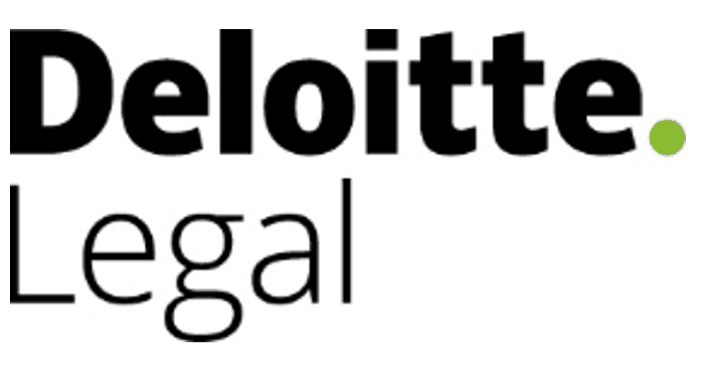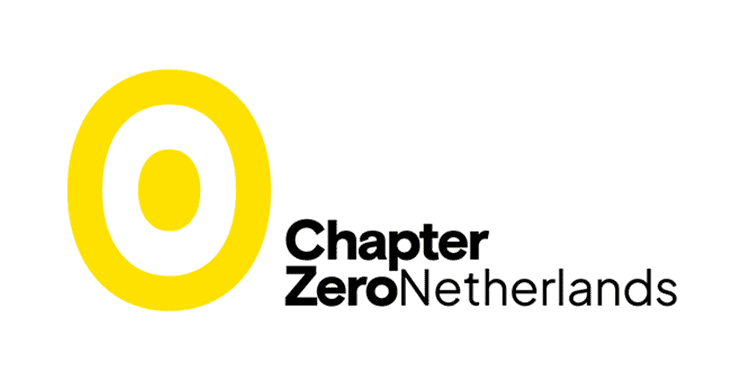This section is to be read in conjunction with the EU section of this primer, and focuses specifically on rules under Dutch law regarding director’s duties and obligations as they pertain to climate change.
A general sense of urgency in respect of climate change can be observed in the Netherlands in recent years. This is strengthened by more extreme weather conditions, causing more frequent and longer periods of (relative) heat and drought on the one hand, and river floodings such as in the province of Limburg in 2021 on the other hand.
The Dutch central government is taking an active role in battling climate change. In 2019, it statutorily laid down the goal to reduce GHG emissions by 95% in 2050 compared to the 1990-levels in the Climate Act, in order to reduce global warming and climate change. To achieve this goal, GHG emissions should be reduced by 49% in 2030 and electricity production in the Netherlands should be fully carbon neutral by 2050.
The current government coalition (expected term in office: 2022-2025) is even more ambitious. In the coalition agreement it committed itself to a 55% GHG emissions reduction goal by 2030 (while aiming for even 60% reductions). These ambitions were underlined by announcing measures to achieve the ambitious goal setting in April 2023. The measures follow a sectoral approach, for example targeting energy, industry, real estate, transportation, agriculture and taxation. However, in the run-up to and aftermath of the 2023 Provincial Council elections, the ambitious climate goals of the government coalition came under pressure due to serious disagreements between the coalition parties. This is mainly due to fierce and persistent opposition of agricultural entrepreneurs against measures to reduce nitrogen emissions, causing local politicians and administrators to turn against the government coalition’s climate measures. At the same time, more and more groups in society are calling upon the central government to do more in the battle against climate change, resulting in for example frequent and increasingly large-scale climate protests as well as electoral gains for green political parties. This polarized political landscape has somewhat slowed down the implementation of the central government’s climate measures, which causes quite some uncertainty, for example for large-scale construction and infrastructure projects.
Amongst the regulatory authorities, the Netherlands Authority for Consumers & Markets (ACM, tasked with supervision on competition matters and trade practices) is making its mark as progressive and activist in respect of sustainability matters. For example, it is allowing competing market operators ample room for cooperation towards climate goals such as CO2 emissions reduction and vigorously fighting greenwashing attempts. DNB (tasked with supervision of banks and the financial system) mainly cooperates with parties in the sector and provides them with guidance when it comes to climate matters. In 2023, DNB published the Climate and Environment Guide, which provides practical examples of how parties in the financial industry can identify and mitigate climate-related risks, and explains how climate and environment are taken into account in DNB’s supervision.
The Netherlands Authority for the Financial Markets (AFM, tasked with supervision of financial markets) conducted a survey amongst companies listed in the Netherlands in 2023, investigating reporting on sustainability matters in general and specifically climate matters in view of the upcoming effective date of the CSRD. The main conclusion of the AFM was that more than half of the surveyed companies has insufficient insight in climate-related risks and is therefore unable to properly report thereon.
The Monitoring Commission of the Dutch Corporate Governance Code published its updated code in December 2022. The Corporate Governance Code applies to listed companies in the Netherlands (on a ‘comply or explain’ basis) and contains principles and best practice provisions that focus on promoting good governance. One of the main pillars of the updated code is a focus on sustainable long-term value creation, which also explicitly entails identifying and mitigating strategic, operational, compliance and reporting risks related to climate change.
Also, the Dutch courts play a serious part in the battle against climate change. First there was the Urgenda v. the Dutch State case in 2019, in which the Dutch Supreme Court established that, by failing to pursue a more ambitious GHG emissions reduction target, the Dutch government had breached its obligations under the European Convention on Human Rights. In 2021, the District Court of the Hague issued its judgment in the famous Milieudefensie v. Shell case, in which the District Court ordered the major Dutch oil company to reduce CO2 emissions by 45% by 2030 relative to 2019 levels, to contribute to the efforts of the Netherlands to honour the Paris Agreement. After that victory, environmental group Milieudefensie wrote a letter to 29 other major companies in the Netherlands, threatening with legal proceedings if they would not publish climate plans aligned with the reduction target in the Shell judgment. However, no court proceedings similar to the Shell-case have been initiated since then. In 2022, Milieudefensie did write incendiary letters to the largest accounting firms in the Netherlands, encouraging them to extensively address climate risks in preparing reports and performing audits. The Netherlands Institute of Chartered Accountants (NBA) and the addressed accounting firms responded by stating that promoting sustainability is indeed a task for (also) auditors.
Directors’ Duties and Climate Change
The duties of directors of companies incorporated in the Netherlands are determined by the Dutch Civil Code (Burgerlijk Wetboek). Pursuant to sections 2:129 (public limited liability companies) and 2:239 (for private limited liability companies), directors are tasked with the management of the company. This entails many subtasks, such as determining the company’s strategy, day-to-day management of the company and its business as well as representing the company towards third parties. Certain tasks relating to the functioning of the company, the management of the company’s assets and bookkeeping are statutorily assigned to the directors The directors’ tasks can be limited or expanded through the company’s articles of association. There is no residual power for directors in respect of tasks not specifically to another corporate body or officer of the company.
In fulfilling their duties, directors have to be guided by the interests of the company and its business. It cannot be described in general terms what these interests are – this is highly depending on the specific circumstances at hand. However, based on established case law of the Dutch Supreme Court, directors have to exercise care and attention for all persons and parties involved in the company and its business (the so-called ‘stakeholder model’). Furthermore, the fulfilment of duties by directors is restricted by the company’s articles of association, (optional) rules of procedure, common decency and public order.
These statutory duties are interpreted on the basis of the Corporate Governance Code. Although only mandatorily applicable to listed companies, the Corporate Governance Code are viewed as what is generally considered ‘good governance’. As such, Dutch courts often refer to the Corporate Governance Code and it is followed by many companies on a voluntary basis. Principle 1.1 of the Corporate Governance Code (‘Sustainable Long-Term Value Creation’) reads as follows: “The management board takes into account the impact the actions of the company and its affiliated enterprise have on people and the environment and to that end weighs the stakeholder interests that are relevant in this context.” According to the explanatory notes, maintaining sufficient awareness of the broader context in which the enterprise affiliated with the company operates contributes to continuing success, and – thus – is in the company’s interest. Therefore, also climate matters are an explicit part of the guidelines for the performance of duties by directors of Dutch companies.
This does not mean that directors averse to climate matters can be easily held civilly liable (by the company or a third party), as Dutch laws requires sufficiently serious personal blame on the part of a director. This is a relatively high threshold for directors’ liability which is applied with restraint by the Dutch courts. And the threshold for liability under criminal laws may even be higher (e.g. fraud). However, Dutch companies that are considered to contribute negatively to climate change have been facing more and more negative consequences in recent years, such as scrutiny of regulatory authorities, competition and procurement effects, and general reputational effects. And these consequences not seldomly also extended to the companies’ directors.
Directors' Disclosure Obligations and Climate Change
The Netherlands has implemented the Non-Financial Reporting Directive (2014/95/EU) in the Dutch Civil Code. It is most likely that also the Corporate Sustainability Reporting Directive ((EU) 2022/2464) will soon be transposed thereto. The Netherlands is also an outspoken supporter of the proposed Corporate Sustainability Due Diligence Directive, which may also include certain climate-related and broader sustainability disclosure obligations. Please refer to the EU section for more information.
Directors of companies that exceed at least two of the following thresholds have to prepare and publish an annual management report: (i) balance sheet total of EUR 6 million, (ii) annual turnover of EUR 12 million, and (iii) 50 employees. Through this management report, the directors provide accountability for and information about the policy conducted and expected.
Pursuant to section 2:391 of the Dutch Civil Code, the management report has to provide a true and fair view of the position on the balance sheet date, developments during the financial year and the results of the company, as well as a balanced and complete analysis thereof, in accordance with the size and complexity of the company. If necessary for a good understanding of the development, results or the position of the company, the analysis comprises both financial and non-financial performance indicators, including environmental and personnel matters. Furthermore, the directors have to describe the main risks and uncertainties the company is facing. Needless to say that both risks for the company connected to climate change and risks for the planet caused by the company’s business (e.g., GHG emissions) have to be addressed in the management report. Besides, the directors also have to elaborate on expected investments as well as circumstances on which the development of revenues depends. These reporting requirements will become stricter, broader and more detailed under the CSRD (and, possibly, the CSDDD).
If the contents of the management report are misleading (i.e., not meeting the statutory standards), both the company and its directors can be held liable under civil and criminal law. However, as already previously indicated, the thresholds for such directors’ liability are relatively high. In addition, the Enterprise Chamber of the Amsterdam Court of Appeal can be requested to order a company and its directors to amend the management report, if it is not compliant with the statutory requirements.
Practical Implications for Directors
In order to reduce or mitigate risks of breaching duties or disclosure obligation directors should aim to embed climate change risks and impacts and overall ESG topics in strategy and decision making. A governance structure to implement this will be helpful. Directors should assure that compliance with the overall regulatory landscape is upkept and developments followed closely.
Contributors:
- Rozemarijn Bloemendal, Deloitte Legal
- Ruben Kamerling, Deloitte Legal
 |  |
